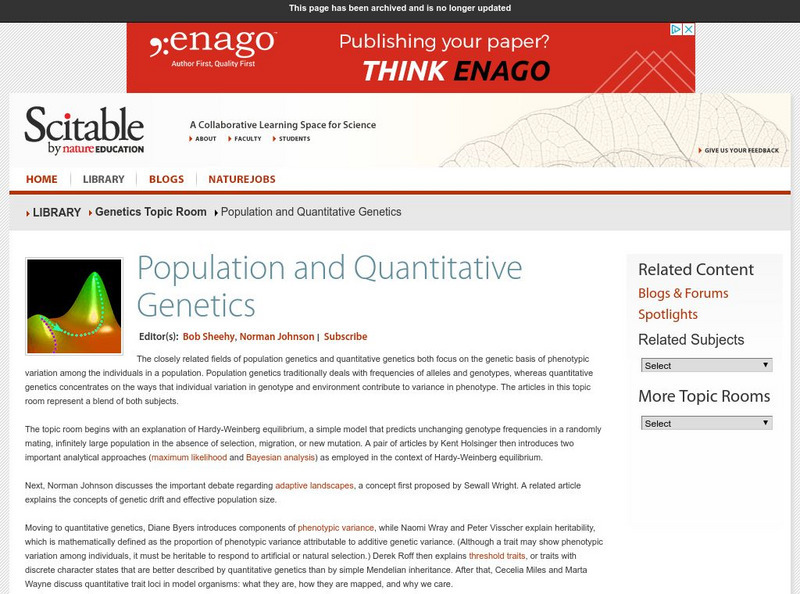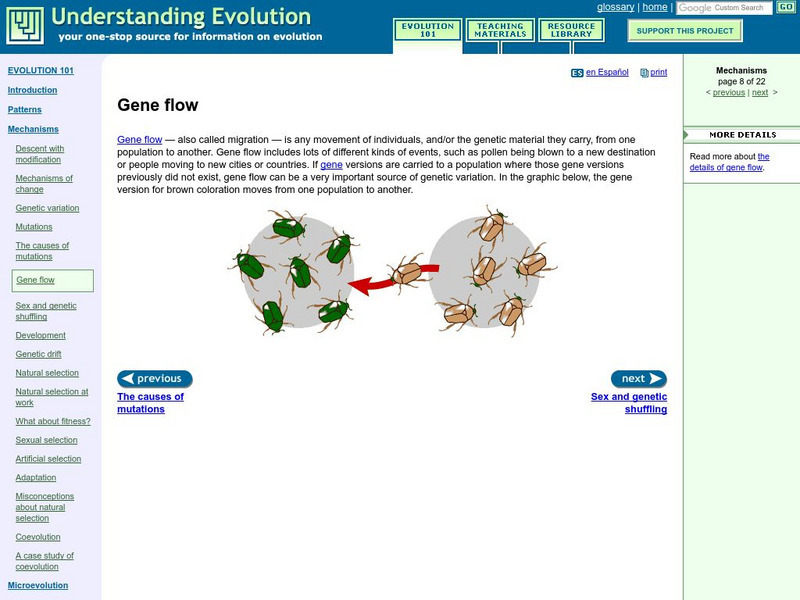Curated OER
Exploring Human Traits
Students explore human behavior by participating in a class science game. In this human characteristics lesson, students identify different human traits that are passed down by each generation and the purpose each of them have. Students...
Curated OER
Red Mangroves Of Southern Florida
Students engage in a unit plan to examine the ecological background for the Mangroves of southern Florida. They conduct research using print and computer technology sources. They use the information in a number of other extension...
Curated OER
Planet of Plenty
Young scholars examine a small piece of land to determine the diversity of life on Earth. They role play as visitors from outer space seeing life on Earth for the first time. They measure and observe their plots while working in small...
Curated OER
Molecular Approaches to Evolution
Students are introduced to working with molecular data. The first activity does both simulated and original data are used to compare amino acid, protein or DNA differences to construct phylogenetic trees or cladograms. These activities...
Curated OER
Responding to Alcohol: What's Important?
Students examine the effects on motor functions in mice. They make observations and graph their data. They analyze the data and draw conclusions in each of the three experiments.
PBS
Pbs Learning Media: Genetic Variation
This video segment from NOVA: "Cracking the Code of Life" explores the genetic similarities and differences among organisms.
Nature Research
Scitable: Population and Quantitative Genetics
Do you know the difference between population genetics and quantitative genetics? This webpage examines both population genetics which concentrates on frequencies of alleles and genotypes and quantitative genetics which deals with the...
BiologyWise
Biology Wise: What Is a Gene Pool and Why Is It Important?
Genetic diversity is only possible with a healthy gene pool in a population. This resource explains the characteristics of a gene pool, why it is important, and factors that cause it to change. The examples provided demonstrate the...
CK-12 Foundation
Ck 12: Biology: Population Genetics
[Free Registration/Login may be required to access all resource tools.] Introduction to macroevolution, microevolution, and population genetics.
University of California
University of California Museum of Paleontology: Evolution 101: Gene Flow
An explanation of the process of gene flow and how it can cause genetic variation within a population.
Other
University of Illinois: Population Genetics [Pdf]
This site from the University of Illinois at Chicago provides an in-depth article on Human Genetics, with a focus on primarily population genetics. The article is factual and informative full of charts, formulas, and extensive text. A...
Palomar Community College District
Palomar College: Hardy Weinberg Principle
This site from Palomar College describes the conditions needed for theHardy-Weinberg Principle to hold true.Completes sample calculations involvingthis principle.









